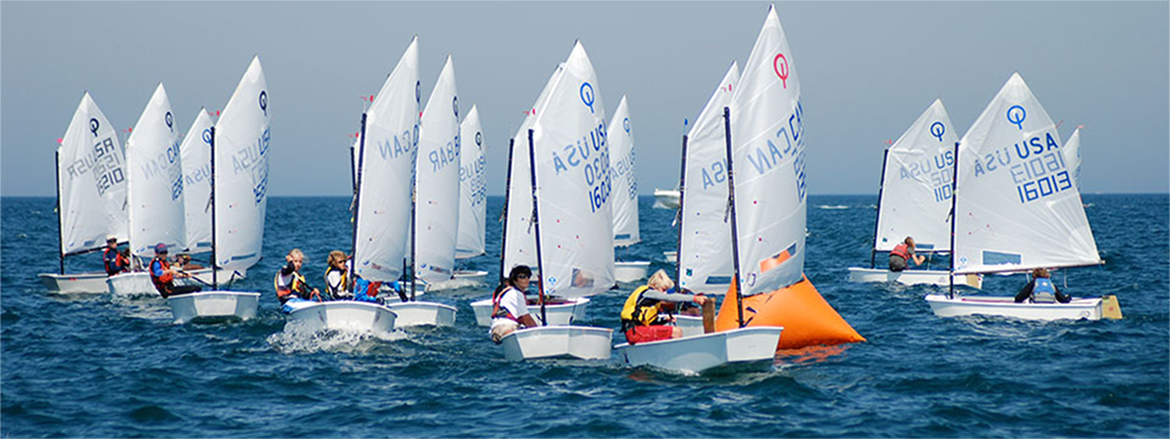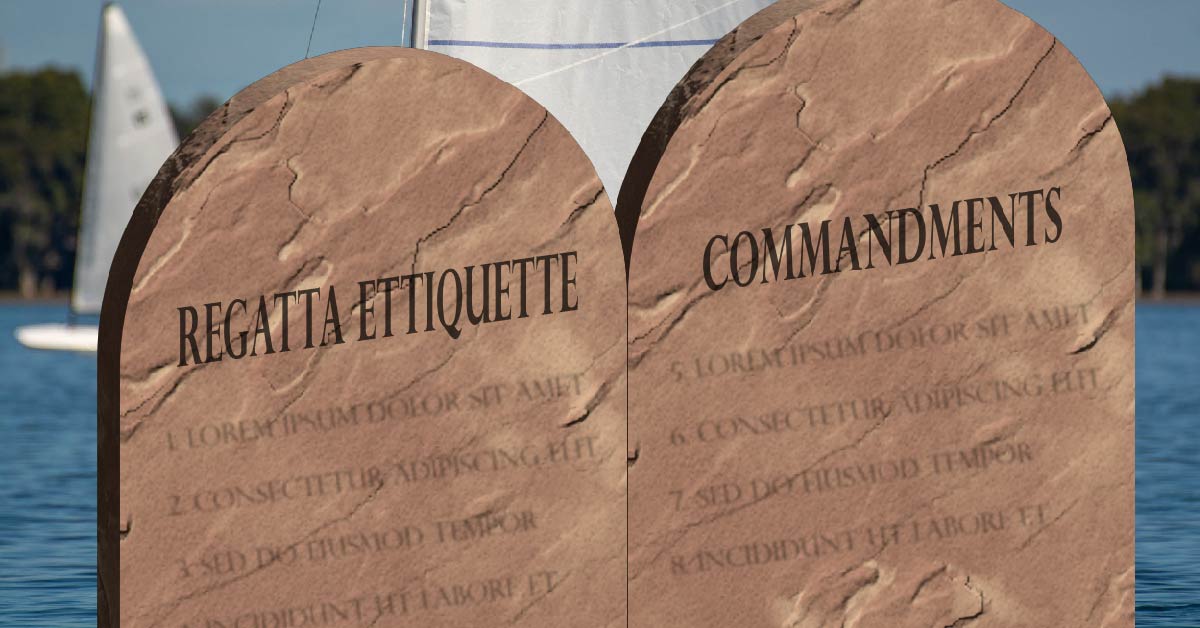You haven’t won the race if in winning the race you have lost the respect of your competitors. Paul Elvstrom
Sportsmanship in Sailing: Challenge and Opportunity
Sailing is a self-policing sport, which presents both a challenge and an opportunity. The challenge? Sportsmanship becomes essential. If the competitors don’t follow the rules, the game becomes frustrating for everyone. The opportunity? We get a unique chance to build a key life skill.
Growing Sportsmanship
You don’t become a “good sport” overnight. Pick out some key behaviors and try them out. Then add more. SailZing reviewed dozens of articles about sailing sportsmanship to come up with 10 of these behaviors .
1. Know the Rules
You have to know the rules, and sailing has lots of them. Learn the rules in stages, starting with the basics and getting more advanced as you gain experience. Check our post on Racing Rules of Sailing: The Best Learning Resources. Watch for more posts about rules on SailZing.
2. Follow the Rules
When you sail competitively, you agree to follow the rules (see Rule 3 in the Racing Rules of Sailing). You also agree to the fundamental principle of sportsmanship, which is that when you break a rule, you must promptly take a penalty.
If you break a rule, don’t wait for another competitor to call you out. There are plenty of inspiring stories about sailors who took a penalty after breaking a rule that no one else noticed. These sailors gained much more in respect than any positions they lost in the race. Here are two examples:
Peter Barrett – 1964 Olympics
Sam Rogers – 2012 E Scow Blue Chip
3. Enforce the Rules
You don’t have to go out on the water looking for people who are breaking rules. But, when you see someone break a rule and not take their penalty, find a way to call it to their attention. If they fouled you, you may end up protesting that boat. If they fouled someone else, talk to them politely after the race.
4. Be Courteous
Thank the race committee, regatta organizers, your competitors, and any friends, family and coaches who helped get you to the starting line. This goes a long way to creating a positive racing atmosphere.
5. Be Fair
Don’t try to use the rules like a zombie, automatically yelling “no room” or “starboard” for every encounter. Give others the benefit of the doubt. Apply the Golden Rule: “Do unto others as you would have others do unto you.”
6. Be Honest
Honesty means recognizing the truth and dealing with it. If you messed up, admit it and learn from the mistake. Covering it up may work for the moment but does nothing for your long-term growth (or your conscience).
7. Communicate
Instead of getting mad at a competitor, communicate. You have a better chance of breaking down barriers and learning something this way. You might also make a new friend. Here’s a great story about that.
Sportsmanship and Communication are Key – Reaching Ahead Blog
8. Move On
If you get fouled, don’t ruin your race by remaining angry. Protest if needed. Then concentrate on finding the next puff or shift.
9. Help and Encourage Others
Helping and encouraging others is a win-win: your competitors appreciate you, and you feel good about yourself.
- Congratulate other sailors for good races
- Be positive with your crew
- Teach something you learned that might help someone else
- Work together while launching and pulling out
10. Be Prepared
If your boat is in good shape and you have have all the equipment you need for racing, you’ll be less dependent on others. You’ll also be less frustrated about “unfair” situations (like a breakdown caused by poor maintenance). Less frustration means better sportsmanship!
Sportsmanship Articles
Here are some articles on how to become a better sport and build sportsmanship in your club.
Win With Style. Lose With Style – Sailing Scuttlebutt. More insights into individual sportsmanship.
Small Boat Sailing: Teaching Sportsmanship – U.S. Sailing. Ideas for instructors.
Sailors Helping Sailors
Will you share your knowledge with your related Comments below?



